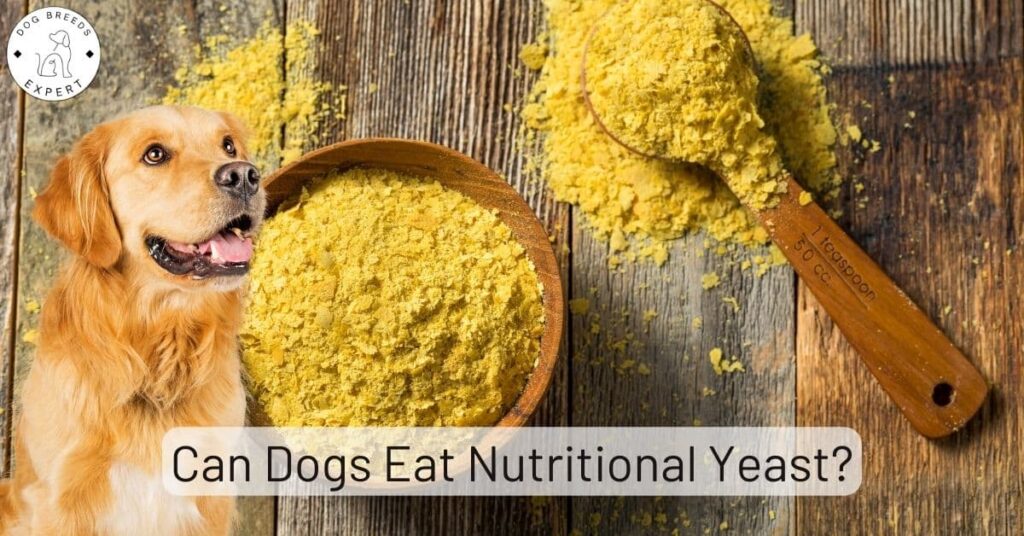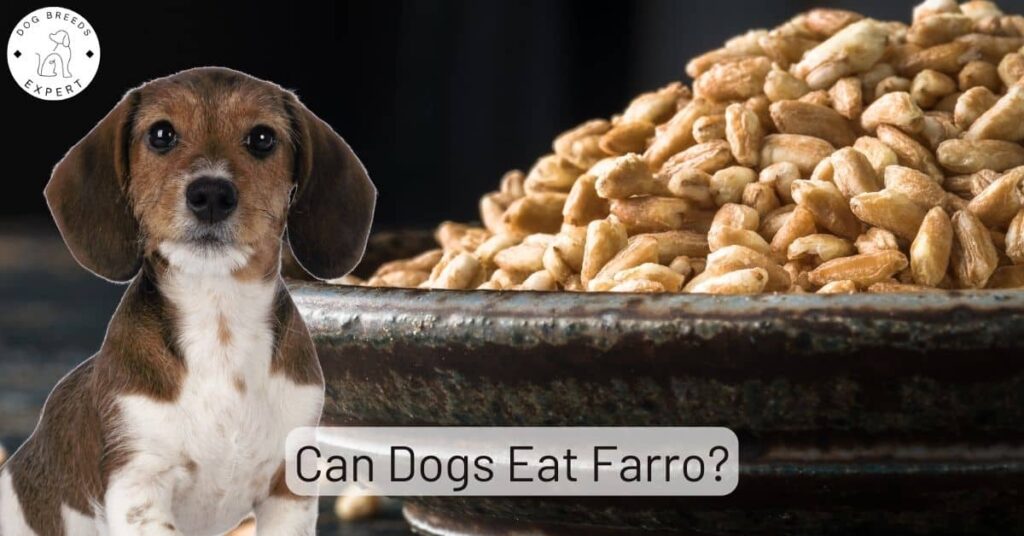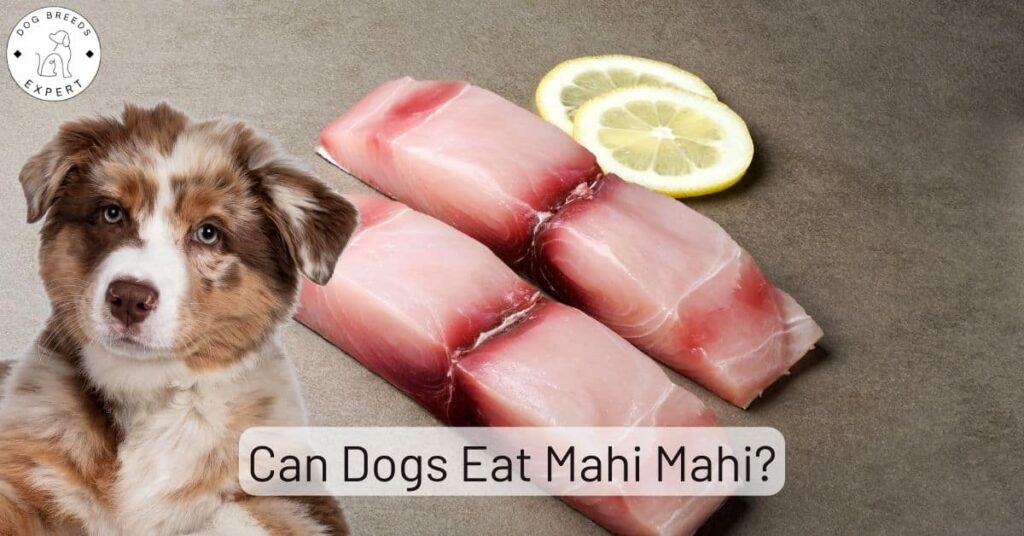Yes, dogs can safely eat nutritional yeast. However, it’s never safe to feed your dog the kind of yeast you use for baking bread or rising dough.
Nutritional yeast can offer a wide variety of health benefits for both people and dogs. It’s used to make cheesy sauces, thicken soups, or can act like parmesan cheese and can be sprinkled on top of pasta and other dishes.
Nutritional yeast is not the same kind of yeast that you use to make bread. That should never be fed to your dog. It’s important to consult with your veterinarian before introducing new supplements to your dog. If it’s right for your dog, it may be used as part of their daily diet. Nutritional yeast is sold in many health food stores and is also formulated specifically for pets and sold at pet supply retailers.
Here is a complete guide, including nutritional values, administration tips for nutritional yeast, and meal suggestions.
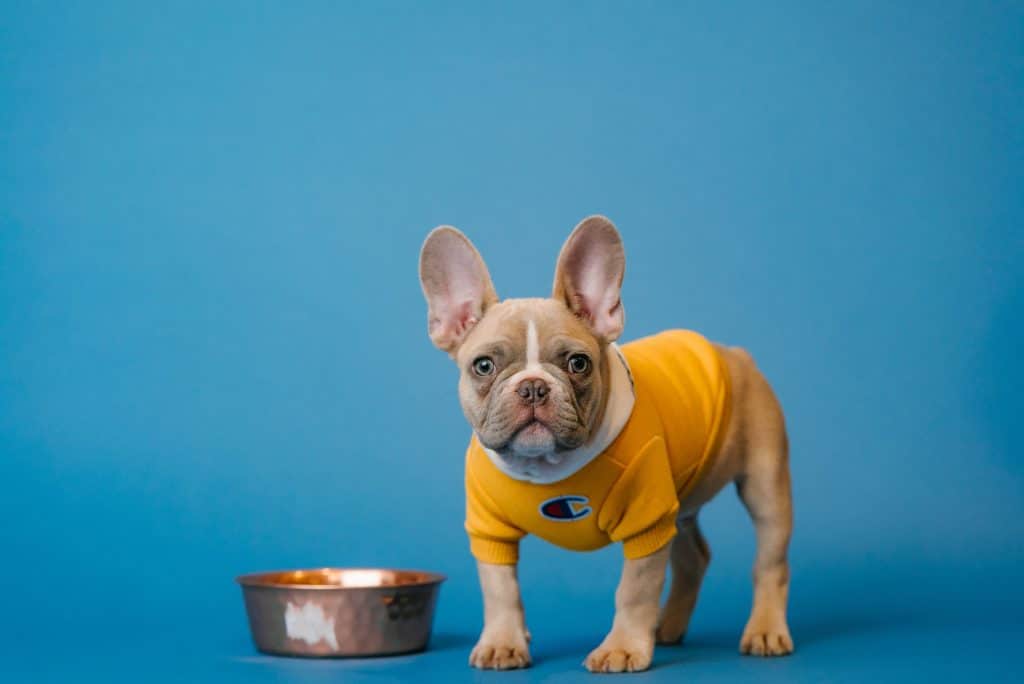
Nutritional Yeast Nutritional Facts
Nutritional yeast is commonly sold as granules or flakes. It’s recommended that you buy products specifically manufactured for dogs. These types of products will have guidelines on how much to feed your dog based on weight.
Here’s a quick list of nutrients found in Nutritional Yeast
A 2-tablespoon (16-gram) serving of nutritional yeast flakes has the following nutrients, vitamins, and minerals.
- Calories: 45.0 (188kJ)
- Total Carbohydrates: 5.0 grams
- Dietary Fiber 4.0 grams
- Sugars: 1.0 grams
- Total Fat: 0.5 grams
- Saturated Fat: 0.0 grams
- Protein: 8.0 grams
- Calcium: 0.0 mg
- Thiamin: 9.6 mg
- Riboflavin: 9.7 mg
- Niacin: 56.0 mg
- Vitamin B6: 9.6 mg
- Folate: 240 mcg
- Vitamin B12: 7.8 mcg
- Pantothenic Acid: 1.0 mg
- Iron: 0.7 mg
- Magnesium: 24.0 mg
- Sodium: 5.0 mg
- Zinc: 3.0 mg
- Copper: 0.1 mg
- Manganese: 0.1 mg
Can Dogs Eat Nutritional Yeast?
Yes, absolutely! Nutritional yeast can be used as a supplement in your dog’s diet and offers many health benefits. It’s important to note that you should never feed your dog the type of yeast used for baking. It’s best to purchase nutritional yeast that is formulated for pets. This can be found at almost any major pet retail site.
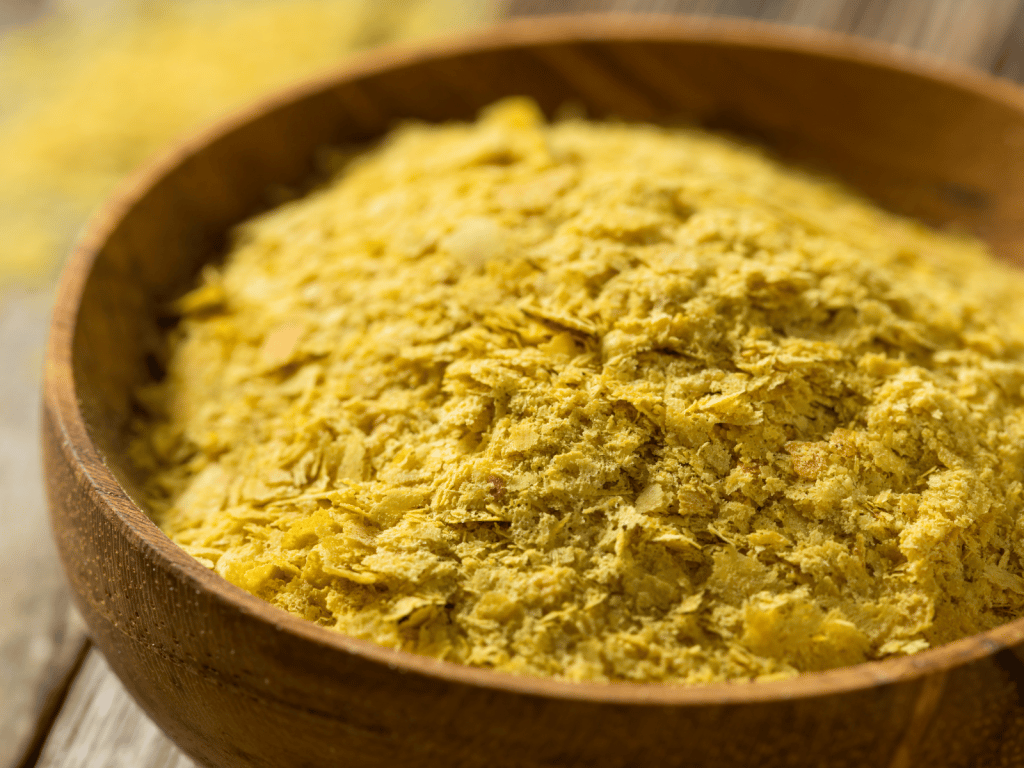
Is Nutritional Yeast Good for Dogs?
Nutritional yeast has B vitamins and antioxidants and helps promote healthy yeast production, optimum skin, and health, and it has even been known to help with allergies. It provides immune system support; it’s also full of minerals that support healthy cell and organ function. It’s important to note that many types of nutritional yeast do not contain vitamin B12, a necessary vitamin; it’s essential to check the label.
Do Dogs Like Nutritional Yeast?
Nutritional yeast is known to have a cheesy flavor that appeals to many dogs. You can sprinkle it on top of your dog’s food at mealtimes.
How Much Nutritional Yeast Can a Dog Eat?
Always consult your veterinarian when introducing a new supplement into your dog’s diet. While nutritional yeast is available at many health food stores, it’s best to use a brand that your veterinarian recommends. Half a teaspoon is a good amount to start with, but you need to consider the size of your dog.
Here’s how much nutritional yeast to feed your dog
Nutritional yeast can be used as a supplement to your dog’s health. If you’re not sure, consult with your vet on the appropriate amount to feed your dog. Otherwise, if you’re purchasing nutritional yeast formulated for pets, the label will have a feeding guide based on the size of your dog.
How Often Can a Dog Eat Nutritional Yeast?
Fed in the correct dosage, your dog can eat nutritional yeast as a daily supplement.
Dogs Are Naturally Omnivores
While dogs are carnivorous, they are technically omnivorous. They’re able to eat and remain healthy with both animal and plant food sources. Wild canines such as wolves or coyotes will consume the stomach contents of plant-eating animals that they kill.
If given a choice, dogs prefer to eat meat over plant material. They are attracted to and prefer the taste of meat, whether it’s raw or cooked. Dogs will eat whatever is available and are mostly scavengers by nature. They will eat garbage, carrion, and whatever they can find.
What are your dog’s basic needs?
- Dog food. Your dog needs a regular source of food that provides the nutrients they require.
- Fresh drinking water. A clean, plentiful supply of fresh water is important to your dog’s health. Change the water daily. How much a dog drinks will vary depending on temperatures and daily activity.
- Shelter. Having a dry and comfortable place to sleep.
- Treats. Treats can be used to mentally stimulate your dog as well as provide a way to chew and keep their teeth clean.
- Love and affection. Spending quality time and providing your dog with love and affection.
Frequently Asked Questions
Can Nutritional Yeast Be Bad for My Dog?
Just like with any new food or supplement, it’s important to feed your dog in moderation. Introduce the correct amount and observe your dog after feeding initially to ensure that there is no adverse reaction. Because it’s a supplement, it needs to be given in the correct dosage in relation to the weight of your dog and dietary needs.
What Happens When a Dog Eats Nutritional Yeast?
If fed in the correct amounts, your dog’s health will benefit from eating nutritional yeast.
My Dog Ate Nutritional Yeast. What should I do?
As long as your dog is fed the correct amount of nutritional yeast for its size, your dog will be fine. However, if your dog has eaten uncooked yeast used for baking or raising dough or if your dog consumed too much nutritional yeast, it’s important to contact your veterinarian immediately.
Conclusion – Can Dogs Eat Nutritional Yeast
It’s perfectly safe for dogs to eat nutritional yeast as long as it’s fed in the correct amount based on your dog’s specific dietary needs and weight. Be sure to always consult with your vet before introducing a new supplement into your dog’s diet.
We hope that this answered your questions about feeding your dog eating nutritional yeast!
Photos:
Photo by Karsten Winegeart on Unsplash

